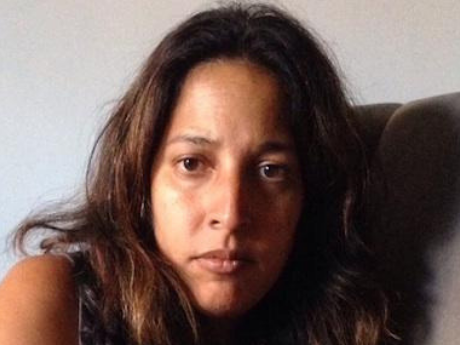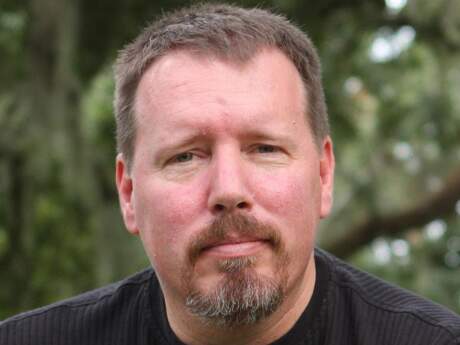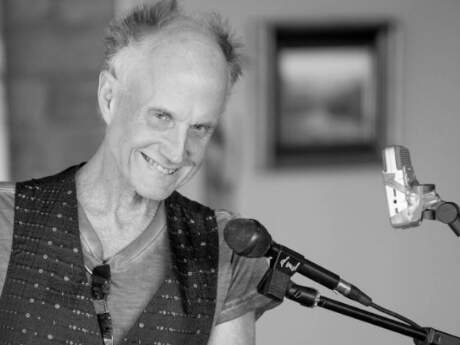Red, White, & Blue
Prageeta Sharma

Do you value the examination of the political in poetry? If so, what experience(s) taught you its importance?
Absolutely, I don't believe that there are many poems which are truly apolitical. Poetry, in general, has many themes and subjects that mark all kinds of sociological factors: class, race, sexuality, identity, disability, exclusion and elitism, etc., what is omitted is political. And, naturally, there are signifying political positions from which all humans speak. To quote Fanon: "To speak...means above all to assume a culture, to support the weight of a civilization." I believe the poem assumes a culture and speaks freely or obliquely about civilization; all poems do this.
To speak to the particulars of how I was taught to think about poetry: Perhaps in finding poetry as a young person I came to love the authority of the poem from the standpoint of its speaker, its shape, its example of personal agency as its own political act. I remembering finding Ai's work and the interesting personas she took on. And there were so many kinds of poets—this multiplicity of style and engagement taught me that wherever poetry proliferated there would be examples of dynamism, truth-telling, and experimentation—and that community and poetry-community emerges from these spaces.
If you write about politics frequently, what issues, difficulties, advantages and disadvantages do you negotiate? Which poets do you draw on when conducting such negotiations?
I am most interested in examining the authority which I find in poetry. How do we give ourselves permission to avow experience and create a personal philosophy? or even find a way to represent our own ill-perceived, misperceived strangeness? I guess I can't help but think about Fanon again, the poem is its own body and he says: "Oh my body, make of me a man who always questions!" Because of the body, we make poems that question—and to quote Whitman about the body: "Each has his or her place in the procession." But to achieve this ideal, to find the place, the body and mind must struggle with the question of equality in order to feel forthright in speaking.
What "responsibility" does an artist have to artistically engage his or her own politic?
Only the "responsibility" that directs your personal ethics and aesthetics.
In 2008, Horace Engdahl, the secretary of the Nobel prize jury, wagged his finger at American writing saying that "[American writers] don't really participate in the big dialogue of literature. […] That ignorance is restraining." What do you think? How have recent American poets engaged with or neglected the so-called 'big dialogue' of literature? Is this 'big dialogue' a political one?
I think this may be the case more in prose than in poetry. I think there's more "big dialogue" in poetry. Sometimes prose can get caught up in its own industry rather than its intellectual roundtable. But poetry, let me see, I think it's a generous place for political ideas to proliferate and grow, and through form and aesthetic constraint, not just in theme and subject.
Is there room for romantic or rugged individualism in political poetry (as opposed to a capacious perspective of Whitman or other past poets)? If so, where is its place?
I hope so! I find myself definitely immersed in the Romantic political poem. I'm not sure poets designate "place" for subjects or themes. Maybe I don't understand the question.
Where do you draw the line between poetry and propaganda? What is the purpose of such a line? Should today's poet be concerned with editorial censorship?
I'm not sure when I find the two together. And I'm not sure I understand if the poem is overly concerned with editorial censorship, except if I think about a poet like Amiri Baraka who I do think has been marginalized because of his political voice.
What are your thoughts on shifts in the state of the political voice in contemporary poetry, from the early modernist to the beat poets and black arts movement, to today? Where are we now? Where are we going?
I think because of what contemporary poets are doing with influence (everything from the 20th century), we are able to invoke a poetry that grapples with a sensitivity that has understood many years of learning cultural theories. I turn to our MFA students to find out what's going on, more and more. I have so many terrific students here in Montana who are engaged with the politics of intention when they write politically (or personally). I am reminded of beautiful and strange lines from MFA student Colin Post's recent poems for his thesis: "The act of walking is easily confused with the act of writing, but walking is the imperial gesture exhausts itself. In walking, one moves, but never progresses. Progress is inevitable in writing." We could say that walking does illustrate progress because of the increased heartbeat and the health benefits associated with it, but the poem resists this line of simple, banal thinking. So where are we? We are immersed, I think, in figuring out what progress is, and whether we like its shape, its logic, the binary implicit in it. So I guess what I'm trying to say is that I am very excited to read the generations of new poets who are immersed in how their process of defining their ethics merges with their process of writing poetry.
* * *
Prageeta Sharma is the winner of the 2004 Fence Modern Poets Prize and the author of three collections of poetry. She holds degrees from Brown University and The New School, and is currently an Associate Professor at the University of Montana in Missoula.Infamous Landscapes (Fence Books, 2007) is her most recent poetry collection.
Published September 2012.


